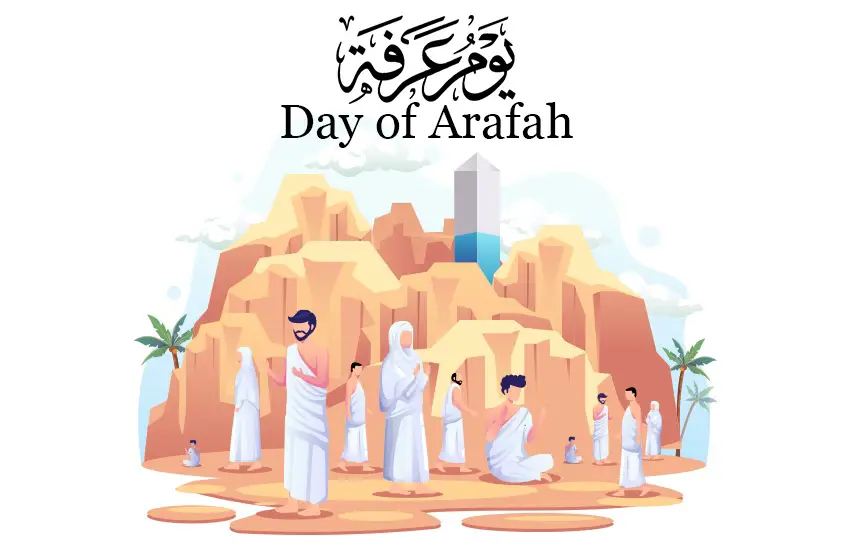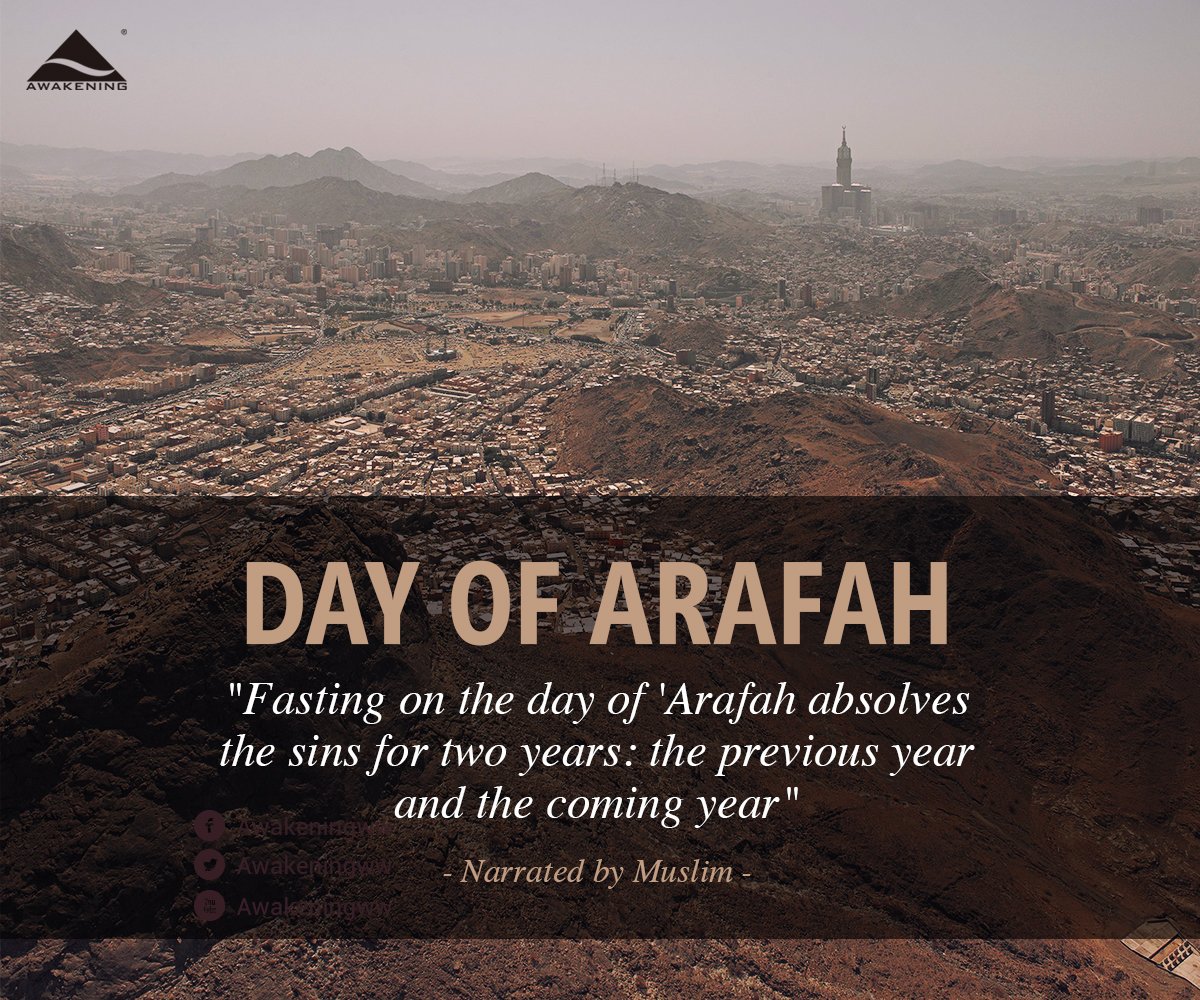
This day I have perfected for you your religion and completed My favor upon you and have approved for you Islam as religion.”
(Surah al Maa’idah 5:3)
The Day of Arafat holds immense importance in the Islamic calendar, and this article delves into its significance and practices. The first section discusses the importance of fasting on this day, while the second highlights the benefits of making dua. The third section provides a comprehensive list of rituals and practices to follow on the Day of Arafat, and the fourth section draws inspiration from Hadiths related to the day. This article is a must-read for anyone seeking to deepen their understanding and practice of Islam during this holy time.
The Significance of Fasting on the Day of Arafat
The Day of Arafat is one of the most significant days in the Islamic calendar. It falls on the 9th day of Dhul Hijjah, the last month of the Islamic year. Fasting on this day holds great importance and significance for Muslims around the world. The Prophet Muhammad (peace be upon him) said that fasting on the Day of Arafat expiates the sins of the previous year and the coming year. This means that if a person fasts on this day with sincerity and devotion, their past sins will be forgiven, and they will be blessed with a clean slate for the upcoming year.
The Day of Arafah fasting is highly encouraged and recommended for those not going on Hajj.
“Fasting on the Day of Arafah expiates the sins of the past year and the coming year.” (Muslim)
Fasting on the Day of Arafat is not obligatory for those who are performing Hajj, but it is highly recommended. For those who are not performing Hajj, it is an excellent opportunity to gain rewards and blessings from Allah. The fast should be observed from dawn until sunset, just like any other voluntary fast. However, it is essential to note that the fast on the Day of Arafat is not valid without the intention of fasting.
The Day of Arafat is also known as the day of forgiveness, and fasting on this day is a way of seeking forgiveness from Allah. It is a day of repentance, reflection, and spiritual renewal. Fasting on this day helps Muslims to purify their souls and strengthen their faith. It is a day of immense blessings and rewards, and Muslims should take advantage of this opportunity to seek Allah’s mercy and forgiveness.
When Aisha was asked about fasting on the day of Arafah, She said that Prophet Muhammad said: “There is no day on which Allah frees more people from the Fire than the Day of Arafah. He comes close and expresses His fulfillment to the angels, saying, “What do these people want?” – Sahih Muslim
Making Dua on the Day of Arafat: Importance and Benefits
The Day of Arafat is not just about fasting, it is also a day of making dua or supplication to Allah. Muslims believe that this day is one of the most important days in the Islamic calendar, and the duas made on this day are more likely to be accepted by Allah.
Making dua on the Day of Arafat is considered an act of worship, and it is believed that Allah forgives the sins of those who make sincere dua on this day. Muslims are encouraged to spend the day in prayer and reflection, seeking forgiveness for their sins and asking for blessings from Allah.
There are many benefits of making dua on the Day of Arafat. It is believed that Allah is especially merciful on this day, and He listens to the prayers of His servants. Muslims believe that making dua on this day can bring them closer to Allah and increase their faith. It is also believed that making dua on the Day of Arafat can bring blessings and prosperity into one’s life.
Amr ibn Shu’ayb reported: The Prophet, peace, and blessings be upon him, said, “The best supplication is that which is made on the day of Arafah. The best of it is what was said by myself and the prophets before me:
لَا إِلَهَ إِلَّا اللَّهُ وَحْدَهُ لَا شَرِيكَ لَهُ لَهُ الْمُلْكُ وَلَهُ الْحَمْدُ وَهُوَ عَلَى كُلِّ شَيْءٍ قَدِيرٌ
“There is no God but Allah alone, without any partners, unto Him belong the dominion and all praise and He has power over all things.”
Muslims are encouraged to make dua in their own language, as well as recite specific duas that have been taught by the Prophet Muhammad (peace be upon him). These duas include asking for forgiveness, guidance, and protection from evil.
Overall, making dua on the Day of Arafat is an important part of the day’s rituals and practices. It is a time for Muslims to reflect on their relationship with Allah and seek His forgiveness and blessings.
Things to Do on the Day of Arafat: Rituals and Practices
On the Day of Arafat, there are several rituals and practices that Muslims should follow. Firstly, pilgrims should head to the plain of Arafat after sunrise and stay there until sunset. This is a crucial part of Hajj, but those who are not performing Hajj can still fast and make dua during this time.
Another important ritual is to stand at the Mount of Mercy and supplicate to Allah. This is where Prophet Muhammad (peace be upon him) delivered his final sermon, and it is believed that Allah forgives the sins of those who stand here with sincerity and humility.
Muslims should also recite the Talbiyah frequently throughout the day, which is a declaration of faith and submission to Allah. Additionally, they should engage in remembrance of Allah through recitation of Quran, tasbih, and other forms of dhikr.
It is also recommended to give charity on the Day of Arafat, as it is a day of great blessings and rewards. This can be in the form of monetary donations or by helping others in need.
Overall, the Day of Arafat is a time for reflection, repentance, and seeking forgiveness from Allah. By following these rituals and practices, Muslims can strengthen their connection with Allah and gain spiritual benefits.
Hadiths Related to the Day of Arafat: Wisdom and Inspiration
The Day of Arafat is a significant day for Muslims around the world. It is a day of forgiveness, mercy, and blessings. The importance of this day can be understood from the various Hadiths that have been narrated by Prophet Muhammad (peace be upon him). These Hadiths provide wisdom and inspiration to Muslims on how to observe this day with sincerity and devotion.
One of the most famous Hadiths related to the Day of Arafat is narrated by Abu Qatada Al-Ansari. He reported that the Prophet Muhammad (peace be upon him) was asked about the fast on the Day of Arafat. The Prophet replied, “It expiates the sins of the preceding year and the coming year.” (Muslim)
Another Hadith narrated by Abdullah ibn Abbas states that the Prophet Muhammad (peace be upon him) said, “There is no day on which Allah frees more people from the Fire than the Day of Arafat. He comes close and expresses His pride to the angels saying, ‘What do these people want?'” (Muslim)
These Hadiths emphasize the importance of fasting on the Day of Arafat and making Dua for forgiveness and blessings. They also highlight the significance of this day in terms of seeking Allah’s mercy and forgiveness. Muslims are encouraged to make the most of this day by performing good deeds and following the rituals with sincerity and devotion.
The Hadith of fasting on the day of Arafah is narrated by Imam Muslim (1162). The Hadith is,
Abu Qatadah (may Allah be pleased with him) narrated that the Messenger of Allah (peace and blessings of Allah be upon him) was asked about fasting on the day of ‘Arafah and he said: “It expiates for the past and coming years.
Muslim
In addition to these Hadiths, there are many other narrations that provide guidance and inspiration for Muslims on the Day of Arafat. These Hadiths serve as a reminder for Muslims to reflect on their actions and seek forgiveness from Allah. By following the teachings of Prophet Muhammad (peace be upon him), Muslims can ensure that they observe this day with wisdom and devotion.









👍🏻
👍
Wow, marvelous weblog structure! How lengthy have you ever been blogging for?
you make blogging glance easy. The total look of your web site is magnificent, as smartly as the content material!
You can see similar here sklep internetowy